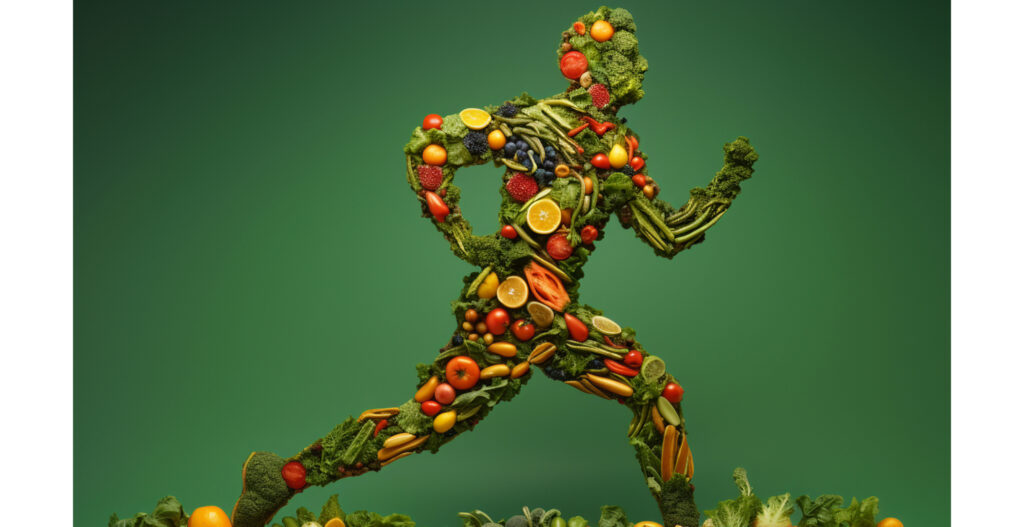The Impact of Nutrition for Runners

Today I want to tell you about my experience meeting with one of Rehab 2 Perform’s registered dietitians. This post is part here’s what I learned about my own nutrition habits, and part here’s why you should consider meeting with an RD as a runner (especially if you’re someone who is frequently dealing with missed training goals or injury).
As an aside, anything found in the following paragraphs is not nutrition or medical advice. It is simply information and a recounting of my personal experience with a registered dietitian.
A little background on me, as I’ve mentioned before, I too enjoy running and have completed multiple marathons, half-marathons, and generally work to maintain a fairly high weekly running volume in between races.
Additionally, I enjoy working with runners in the clinic. I commonly have conversations with runners on whether or not they feel they are fueling and hydrating enough to support their training. Luckily, I now have an excellent clinician in house to refer them to should they need it!
What I learned about my own habits
The session started with a general conversation and overview of what my daily diet looks like. Here are the foods I generally eat for breakfast, lunch and dinner; and here are the snacks I typically eat. A goal of mine was to find out if I had any “blindspots” in my diet. What was I missing on a daily basis that could add benefit to my performance (and just ability to navigate the day from a nutrition standpoint).
Protein and healthy fats:
Carbs are obviously king when it comes to nutritional needs and fueling with endurance sports. I was having no problem filling this macro bucket. However, she pointed out that I could probably benefit from adding more protein at breakfast and supplement with healthier fats throughout the day. Both of these macronutrients have the effect of making you feel more satiated; and less likely to binge snacks to fill you up. Protein also aids in recovery as it helps to rebuild muscle following exercise, making it a key component of your diet during higher intensity training blocks. Healthy fats, such as those found in nuts, nut butters, and cold water fatty fish like salmon, also tend to have an anti-inflammatory effect.
Suggestions to me:
- Add my choice of protein to breakfast to start my day
- Consider adding peanut butter to my mid-morning belvita snack
- Continue with the trail mix as part of my afternoon snack
Dairy isn’t a bad thing:
At some point I stopped making dairy a component of my diet. I am fortunate in that I do not have a dairy sensitivity, and to be honest I love cheeses and other dairy products. It just happened to fall out of my nutrition routine for one reason or another.
She pointed out that whole milk and other dairy products can be an easy way to add a bit of fat and protein to my day. Thus, helping to fill a blindspot that we had already discovered.
Personally, I deal with acid reflux on a regular basis. Adding a basic, less acidic food like dairy could be helpful as I had no sensitivity to it.
Dairy is also a good source of vitamin-D and Calcium. Both of these have significant positive effects on bodily health and function. We’ll touch more on vitamin D below.
Suggestions to me:
- Add greek yogurt back into my diet
- Consider using whole milk in my cereal or coffee
Anti-inflammatories – Vit-D (w/ K2) and Fish Oil
Long distance running is demanding on the body. Muscle tissue recovery, nagging pains, and the occasional injury can contribute to increased markers of inflammation being present on the body. Some of the side effects can be fatigue, higher sensitivity to pain, blunted immune response, and more.
She brought two supplements to my attention, vitamin D (with K2) and Fish Oil. Both are thought to have an anti-inflammatory effect in the body, affect how the body retains/absorbs calcium from the diet, and can have a positive effect on overall immune function.
Suggestions to me:
- Consider adding these supplements to my diet during periods of high training volume
Why you should consider seeing an RD
So why should you seek out an RD for a consultation? Briefly, they can assist you in finding blindspots in your nutrition habits, provide you with a sounding board to learn more about nutrition myths and misconceptions, and may even provide you with permissions with regards to food intake. We accomplished all of this in a 30 minute session!
If you are someone who is dealing with longer recovery times, generalized fatigue, injuries such as stress fractures, or other overuse (or under-recovery) type injuries, you might consider speaking to a registered dietitian.
Until next time, run healthy, eat (and hydrate) well, and keep getting those miles!
Keep running strong!, Dr. Greg.
Want the support our Nutrition Team? Get all the Details Here
Looking for more guides, templates, and support along your Running Journey? Check out and work with Dr. Greg on our online platform, R2P+ . Get Started Now!

Dr. Greg Ellis PT, DPT, CSCS
Performance Physical Therapist
Follow Greg on Instagram (HERE) for more content and to see his running progress!
Fitness Focused Physical Therapy
Running injuries holding you back? Rehab 2 Perform specializes in preventing risk to re-injury and empowering you with the tools to stay active. We serve the DMV with 10 locations Currently! Contact us today at 1(301) 798- 4838 or schedule an appointment by visiting us here today.
We accept all major insurances, including Tricare, VA Community Care, and the Johns Hopkins Healthcare Network!

